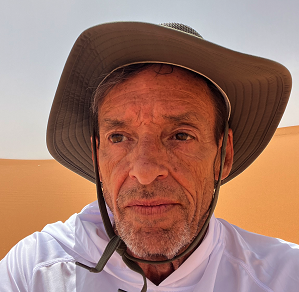As we celebrate National Recovery Month this September, we want to highlight how substance use prevention and recovery go hand in hand. Both of these efforts share the same goal: reducing harm caused by substance use.
Prevention is the proactive shield we put in place to stop risk behaviors or problematic use of substances before they turn into substance use disorders (SUD). Recovery is the helping hand extended to those already experiencing SUD, helping them in regaining control over their lives, providing support and services while they go through their individual process.
Both of these endeavors (based on evidence and science) work together to combat the stigma that surrounds SUD, spreading awareness about the risks of substance use and relying on the support of communities to help create change. It’s important to recognize that problems with substance use are often intertwined with other challenges, such as unresolved traumas, strained relationships, job loss, legal complications, and deteriorating mental health. Both prevention and recovery acknowledge how these issues are related, emphasizing the need for a comprehensive approach to address them.
 This month, The Partnership is highlighting the personal stories of New Hampshire (NH) residents in recovery. The following excerpt was written by Keith Howard, the Executive Director of Hope for NH Recovery. Keith is a strong advocate for people living in recovery, and here he shares his perspective on recovery. In his writing, he talks mainly about alcohol, however, his experience shows us that it’s not only about one specific substance; it’s about relying on these substances to cope with life’s challenges.
This month, The Partnership is highlighting the personal stories of New Hampshire (NH) residents in recovery. The following excerpt was written by Keith Howard, the Executive Director of Hope for NH Recovery. Keith is a strong advocate for people living in recovery, and here he shares his perspective on recovery. In his writing, he talks mainly about alcohol, however, his experience shows us that it’s not only about one specific substance; it’s about relying on these substances to cope with life’s challenges.
“Between Tide and Traffic: The Choice of the Addicted”
A message from Keith Howard
 My problem has never been drugs or alcohol. In fact, I’d venture the same is true for everyone now in recovery or active addiction. For the rest of this piece, I’ll be focused on alcohol, but I haven’t see any difference between liquid alcohol (booze), powdered alcohol (dope, coke, meth, etc.), plant-based alcohol (peyote, mescaline, etc.), and alcohol in pill form. It’s all solved and created the same problems for me. Let me explain.
My problem has never been drugs or alcohol. In fact, I’d venture the same is true for everyone now in recovery or active addiction. For the rest of this piece, I’ll be focused on alcohol, but I haven’t see any difference between liquid alcohol (booze), powdered alcohol (dope, coke, meth, etc.), plant-based alcohol (peyote, mescaline, etc.), and alcohol in pill form. It’s all solved and created the same problems for me. Let me explain.
If alcohol had been my problem, I wouldn’t have needed to recover. I would have just quit using and my problem would have been put on the shelf. There it could stay forever—never again would it need to trouble me, as long as I didn’t drink.
My problem was not alcohol. My problem was that my only solution to life was alcohol. It may have been a solution that carried lots of future complications, but alcohol was the one surefire way I knew to feel significantly better about life.
I know algebra drives some people crazy, but let me try to illustrate this:
If ALCOHOL = My Problem
When I remove the left side of the equation (ALCOHOL), then the right is balanced by removing My Problem.
If, though, ALCOHOL = My Only Solution to Life
When I remove the left side of the equation (ALCOHOL), then removing alcohol simply leaves me alone, adrift, and answerless.
Without going into great detail—not out of a sense of privacy but because I’ve written about this at length elsewhere—I’ve attempted suicide twice. Each attempt came at the end of the longest time I’d ever gone without drugs or alcohol. When I stop drinking—without a program of recovery!—I want to kill myself.
Again, if my problem had been alcohol, I wouldn’t have needed recovery. I would simply stop drinking, my problems would dry up, and I’d go about my business. My challenge was that drinking worked in an immediate way—with alcohol, my life might be unmanageable, but without it, my life was in danger.
My experience taught me avoiding alcohol led to suicide. Like a man living on credit cards, I might know in one part of my brain that this couldn’t continue, while the rest of my being cried out not to stop. I got very good at ignoring that first part of my brain and continued drinking until I was 48, sometimes more booze, sometimes less, but with a steady upward climb. By the end of my drinking, I was a man on the Golden Gate Bridge, trying to decide whether to jump left into the bay or right into oncoming traffic.
I’m not a God guy today—whether there is a Big Joker in the Sky or the universe is an unsigned masterpiece makes little difference to me—but I know something happened to me at the jumping-off point, so that I sought help instead of destruction.
Instead of drowning or jumping into traffic, I got off the bridge. And so can you.
This very moment, you may be reading this with the shock of recognition, of identification with my predicament. It may be you have grown used to headaches in the morning, an ever-increasing sense of dread deep in the gut, the knowledge you shouldn’t go on but you CAN’T STOP NOW. It may be you’re contemplating suicide, homicide, uxoricide (a real word—look it up), bossicide (a made-up word—sound it out), or any of a number of –cides out there. It just may be that alcohol and drugs have drained the color from your world and these shades of gray offer no excitement at all. Whether you think you might have a bit of a drinking problem, or you know you’re an alcoholic, you can get help—not just from professionals with letters after their names (although they are not to be scoffed at), but from other people who have been where you are, where I was, and where you don’t need to stay.
If you’re looking for help with substance use for yourself or a loved one, support is available.
- Call 2-1-1, NH’s resource navigator for substance use treatment
- Visit or call The Doorway – NH
- Come to Hope for NH Recovery (or your local recovery center) and attend a meeting or speak with one of our recovery coaches.
If each of those ideas seem impossible, call ME at 603-361-6266. I’m just a chucklehead, but I’m a chucklehead who’s stopped using and drinking. I’ll help you find what you need. Really.
Or you can stay on the bridge, choosing between “tide and traffic”.
Prevention works, treatment is effective, and people do recover. In addition to Keith’s message this National Recovery Month, The Partnership also invites you to watch our Better Now: Life Without Substance Use video to hear more personal stories of recovery.

